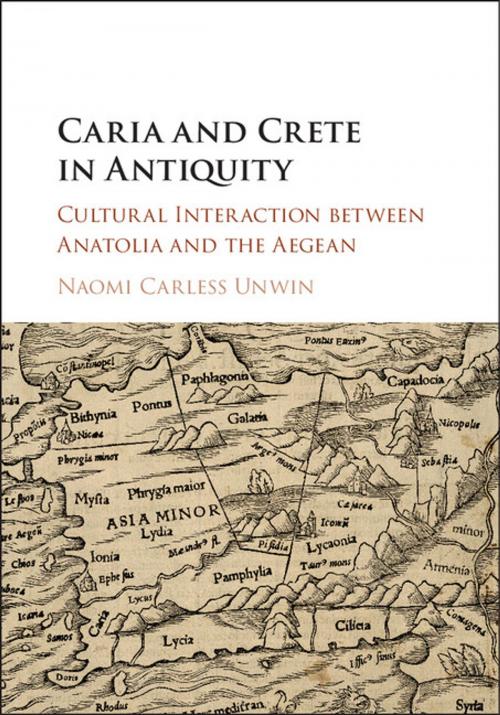Caria and Crete in Antiquity
Cultural Interaction between Anatolia and the Aegean
Nonfiction, History, Ancient History, Religion & Spirituality, Philosophy| Author: | Naomi Carless Unwin | ISBN: | 9781108339803 |
| Publisher: | Cambridge University Press | Publication: | July 13, 2017 |
| Imprint: | Cambridge University Press | Language: | English |
| Author: | Naomi Carless Unwin |
| ISBN: | 9781108339803 |
| Publisher: | Cambridge University Press |
| Publication: | July 13, 2017 |
| Imprint: | Cambridge University Press |
| Language: | English |
A persistent tradition existed in antiquity linking Caria with the island of Crete. This central theme of regional history is mirrored in the civic mythologies, cults and toponyms of southwestern Anatolia. This book explains why by approaching this diverse body of material with a broad chronological view, taking into account both the origins of this regional narrative and its endurance. It considers the mythologies in the light of archaeologically attested contacts during the Bronze Age, exploring whether such interaction could have left a residuum in later traditions. The continued relevance of this aspect of Carian history is then considered in the light of contacts during the Classical and Hellenistic periods, with analysis of how, and in which contexts, traditions survived. The Carians were an Anatolian people; however, their integration into the mythological framework of the Greek world reveals that interaction with the Aegean was a fundamental aspect of their history.
A persistent tradition existed in antiquity linking Caria with the island of Crete. This central theme of regional history is mirrored in the civic mythologies, cults and toponyms of southwestern Anatolia. This book explains why by approaching this diverse body of material with a broad chronological view, taking into account both the origins of this regional narrative and its endurance. It considers the mythologies in the light of archaeologically attested contacts during the Bronze Age, exploring whether such interaction could have left a residuum in later traditions. The continued relevance of this aspect of Carian history is then considered in the light of contacts during the Classical and Hellenistic periods, with analysis of how, and in which contexts, traditions survived. The Carians were an Anatolian people; however, their integration into the mythological framework of the Greek world reveals that interaction with the Aegean was a fundamental aspect of their history.















